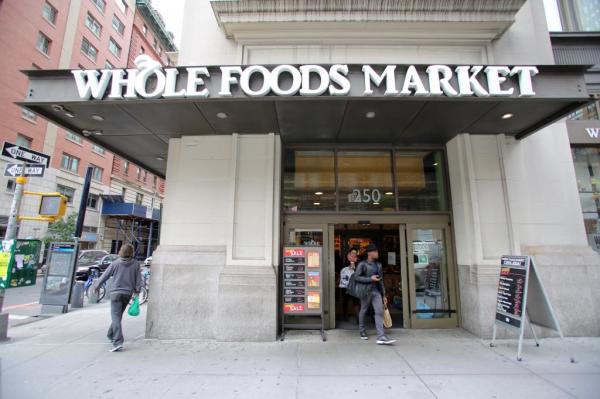-
Tips for becoming a good boxer - November 6, 2020
-
7 expert tips for making your hens night a memorable one - November 6, 2020
-
5 reasons to host your Christmas party on a cruise boat - November 6, 2020
-
What to do when you’re charged with a crime - November 6, 2020
-
Should you get one or multiple dogs? Here’s all you need to know - November 3, 2020
-
A Guide: How to Build Your Very Own Magic Mirror - February 14, 2019
-
Our Top Inspirational Baseball Stars - November 24, 2018
-
Five Tech Tools That Will Help You Turn Your Blog into a Business - November 24, 2018
-
How to Indulge on Vacation without Expanding Your Waist - November 9, 2018
-
5 Strategies for Businesses to Appeal to Today’s Increasingly Mobile-Crazed Customers - November 9, 2018
Following protest, Whole Foods to stop selling food produced by inmates
Whole Foods has announced it will stop selling foods made or processed by prison inmates by spring next year after customers complained. The stated reason is that “some customers were uncomfortable” with the arrangement, though the announcement followsa protest against the practice in Houston over the weekend.
Advertisement
Whole Foods now sells goat cheese, trout and tilapia made by inmates in Colorado.
Mr Allen notified Whole Foods in August of his intention to stage the demonstration in front of a Texas store if the company did not stop selling these products. One of its marketing campaigns states, “We want to have the information to make meaningful choices about what we decide to buy and support”.
The products in question came from the Colorado Correctional Industries (CCI) through third parties to Whole Foods. The partnership began in 2011.
“One of our core values as a company is supporting our communities”, Whole Foods spokesperson Michael Silverman said.
The spokesman added: ‘We felt that supporting suppliers who found a way to be part of paid, rehabilitative work being done by inmates would help people get back on their feet and eventually become contributing members of society’. CCI administers prison work programs across the state.
Marc Mauer, executive director of The Sentencing Project, said programs like this have the potential for exploitation because companies typically pay far less for prison labor than they otherwise would. But it said it is proud of its work with CCI to help inmates learn job skills they can use when released. Not to mention, what else is Whole Foods up to that isn’t protest-worthy?
Advertisement
“This is a model example of a prison-work program”, Scaggs says. Inmates receive only 74 cents per day, in a few cases, for high-end foods the supermarket chain sells at top-shelf prices.





























